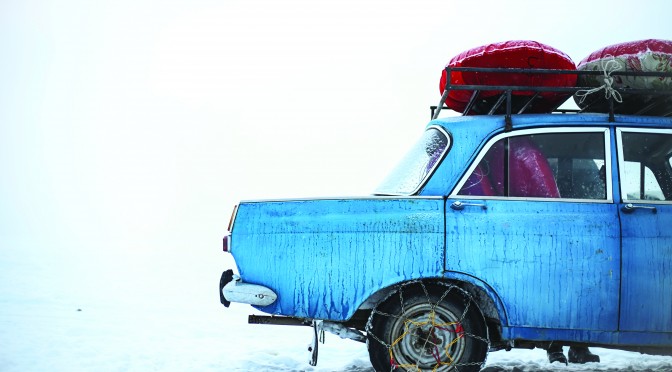by Jack Taylor
Winter in Montana is magical. Our landscape takes on a beautiful frozen stillness that beckons us to venture out among frosty firs, blanketed meadows, and frozen waterfalls. Even as temperatures plunge below zero, we catch glimpses of wildlife adapted to survive in the snowglobe. But as humans, we’re not so adept at enduring the cold. We depend on warm clothing, heating, and shelter to make it through. The margin for error in the outdoors is thinner during winter, and a mishap can quickly turn dangerous if you’re not prepared.
Before you take on the snowy roads, make sure your vehicle is capable. Snow tires are highly recommended and will make your life easier—and safer—all winter long. Yes, it’s a big investment, but with two sets of tires for summer and winter, each will last twice as long. If you must go without, a set of chains in your car will get you out of a pickle. Make sure they fit your tires, and practice installing them so that you can do it quickly when the time comes. If you have a front- or four-wheel drive car, put them on the front tires; if rear-wheel, put them on the back. A few more items to keep in your car include a shovel for digging yourself out, jumper cables in case your battery dies, and gloves plus warm jackets (or even a sleeping bag) in case you get stuck for a long time.
Extra warm layers are also essential when venturing away from your vehicle. A good rule of thumb is to bring one layer more than you think you’ll need—better safe than sorry. When planning your layering scheme, start with a moisture-wicking baselayer made of synthetic fibers or wool. Never wear cotton for warmth in winter; if it gets wet, it won’t dry out until you’re back in a warm environment. Fleece makes a great midlayer for top and bottom, and the same rule applies for materials. A waterproof shell usually isn’t necessary given the dryness of our winters, but a windbreaker will add protection without taking up much space in your pack. On top of that, an insulated jacket with synthetic or down fill gives you lots of warmth with little extra weight to carry. Down has a better warmth-to-weight ratio, but like cotton, it will not dry in the cold, so synthetic is always a safer bet.

